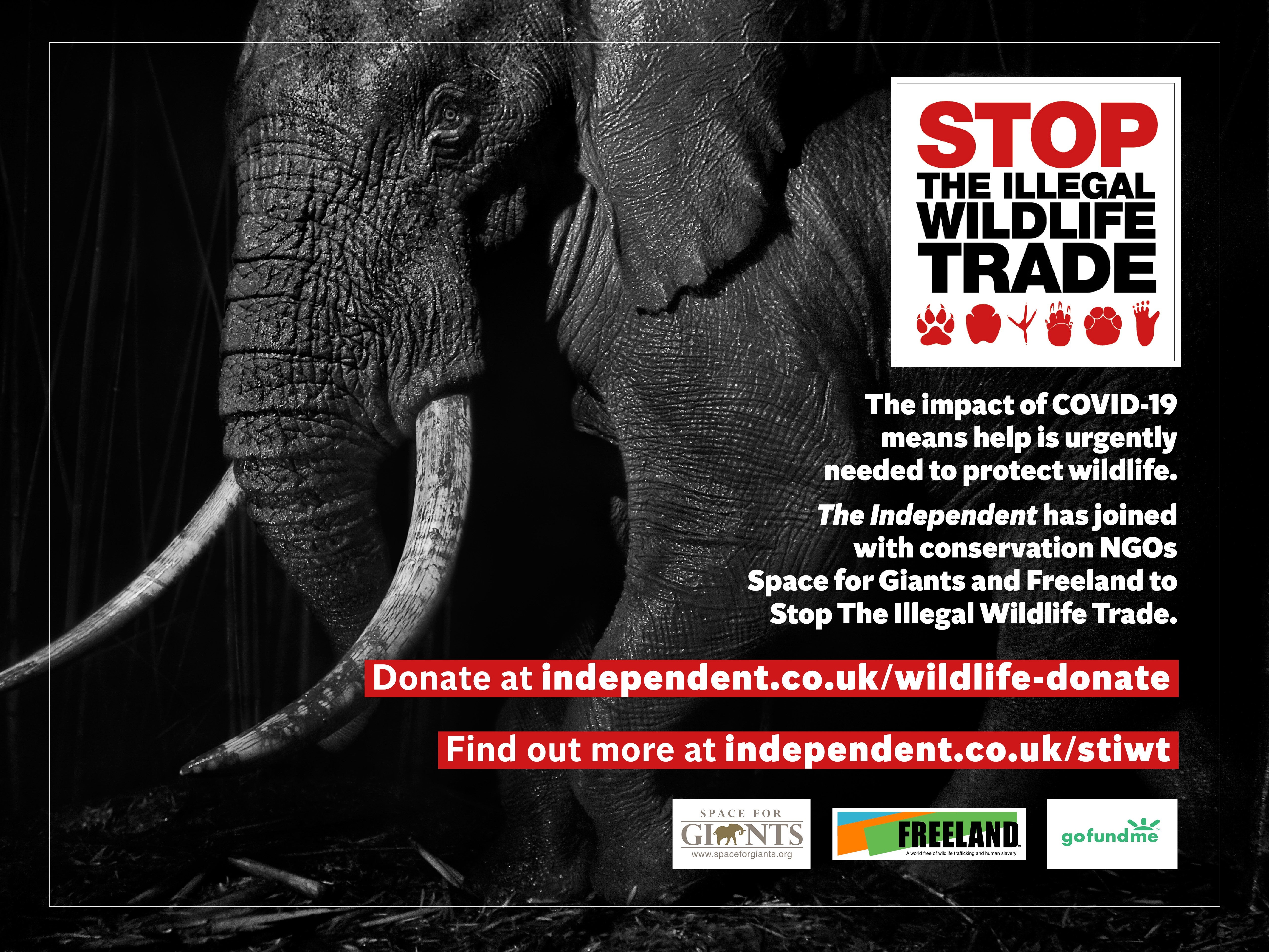Stop the Illegal Wildlife Trade: The battle to rescue cheetahs from the deadly pet trade in the Horn of Africa
On World Wildlife Day, Daisy Dunne speaks to a veterinary surgeon caring for cheetah cubs confiscated from smugglers in Somaliland


Your support helps us to tell the story
From reproductive rights to climate change to Big Tech, The Independent is on the ground when the story is developing. Whether it's investigating the financials of Elon Musk's pro-Trump PAC or producing our latest documentary, 'The A Word', which shines a light on the American women fighting for reproductive rights, we know how important it is to parse out the facts from the messaging.
At such a critical moment in US history, we need reporters on the ground. Your donation allows us to keep sending journalists to speak to both sides of the story.
The Independent is trusted by Americans across the entire political spectrum. And unlike many other quality news outlets, we choose not to lock Americans out of our reporting and analysis with paywalls. We believe quality journalism should be available to everyone, paid for by those who can afford it.
Your support makes all the difference.“Some of the cubs that I’ve seen just look horrible”, says Dr Mahesh Bhatt, a 27-year-old veterinary surgeon from Birmingham who has been working for a cheetah conservation project in Hargeisa, Somaliland for the last six months.
“They’re super dehydrated, malnourished, very skinny and have external parasites, like fleas, ticks mites, that sort of thing,” he tells The Independent.
“Some come in with random body parts amputated, such as amputated tails or amputated noses. The reason why is still a mystery.”
Almost all of the cheetahs in Dr Bhatt’s care have been confiscated from smugglers planning to sell the animals through the illegal pet trade.
In the Horn of Africa, cubs are routinely captured from the wild and then trafficked to countries in the Middle East, where they are sold as “pets”. (A recent report from the investigations platform Bellingcat found that social media influencers in Dubai are likely fuelling the surging demand for “exotic pets” such as cheetahs.)
Stop the Illegal Wildlife Trade
We are working with conservation charities Space for Giants and Freeland to protect wildlife at risk from poachers due to the conservation funding crisis caused by Covid-19.
Help is desperately needed to support wildlife rangers, local communities and law enforcement personnel to prevent wildlife crime. Donate to help Stop the Illegal Wildlife Trade HERE
But the Cheetah Conservation Fund (CCF) – the not-for-profit organisation that Dr Bhatt is working with – estimates that only one in six cubs typically survive the journey across the sea to the Middle East.
And cubs lucky enough to survive often don’t last long as “pets”, says Dr Laurie Marker, a US zoologist and founder of the CCF.
“Usually, if they make it, people don’t know how to take care of them,” she tells The Independent. “And they usually only live for a year or two because of malnourishment and disease.”
Cheetahs were once common throughout Africa, the Middle East and Asia. However, threats such as habitat loss, conflict with humans and the illegal pet trade have seen cheetahs disappear from around 90 per cent of their historic range in Africa, and close to all of their former range in the Middle East and Asia.
Today, around 7,000 cheetahs remain in the wild – and the lasting population is considered to be “vulnerable” to extinction by the International Union for the Conservation of Nature (IUCN) Red List of Threatened Species.
Somaliland provides the main transit route for cheetah trafficking out of East Africa. The CCF estimates that around 300 cheetahs are smuggled out of every year.

Authorities in the region are taking some steps to address the problem, Dr Marker explains. In Somaliland, wildlife trafficking is a crime – and several cheetah smugglers have been handed jail sentences in the last couple of years.
As a result of increased efforts to intercept smugglers, the CCF’s safe house in Hargeisa has seen an uptick in the number of cubs needing care, she says.
“In the last year or so we’ve had about 20 cubs come – a year ago we had 20 and now we’ve got 58,” she says.
“The government is more aware of the issue now, and so the confiscations have increased in numbers. Prior to that, more animals were being shipped over to the Middle East.”
Some of the cubs confiscated from smugglers are just a few weeks’ old and require round-the-clock care, says Dr Bhatt. “You’re got to feed them around five or six times a day, and through the night, so they need a lot of care and attention.”
Even once the cubs have been nursed back to health, it’s usually not possible to return them to the wild, he says. One of the main reasons for this is because the cubs were taken from their mothers before they had the chance to learn vital survival skills.
To try to reduce the number of cheetahs being taken from the wild, Dr Bhatt and others at CCF engage in outreach and education programmes with local communities. Much of the illegal trade of cheetahs stems from conflict between the animals and nomad farmers, who view them as a threat to their livestock, he explains.
The conservation project is also working with governments in the Middle East to try to curb the demand for “pet” cheetahs, says Dr Marker.
“We’re trying to work hard with governments in the Middle East to try to bring about an awareness that taking cheetahs from the wild is really causing the species to go extinct,” she says.

Join our commenting forum
Join thought-provoking conversations, follow other Independent readers and see their replies
Comments